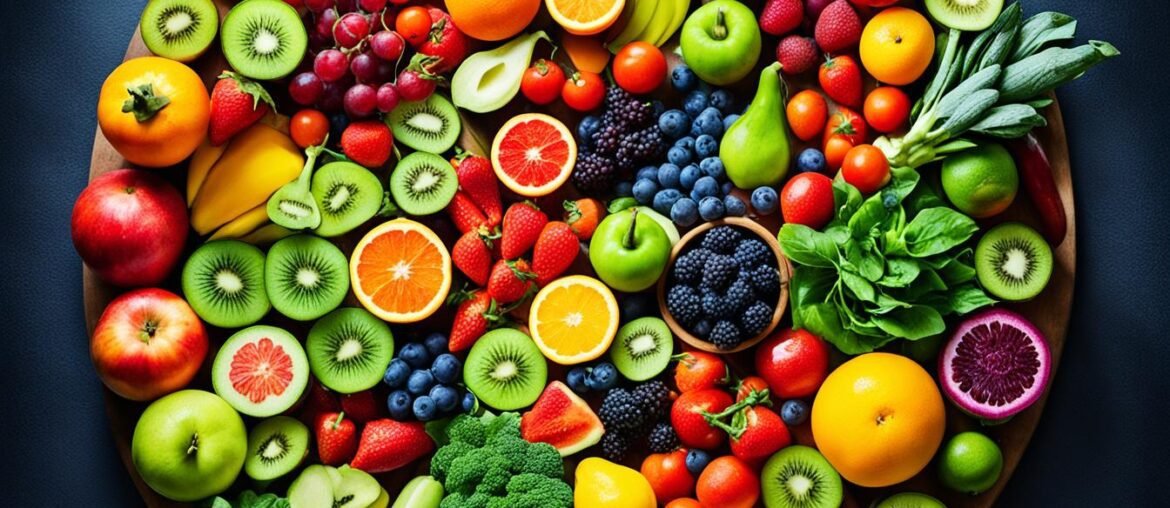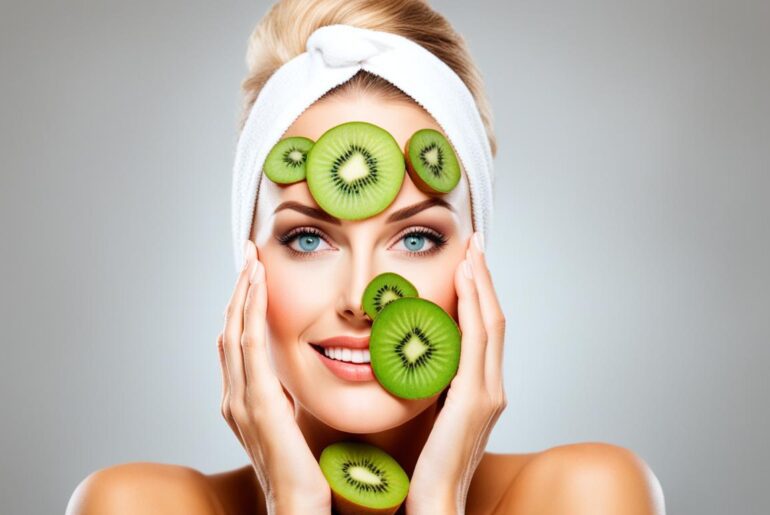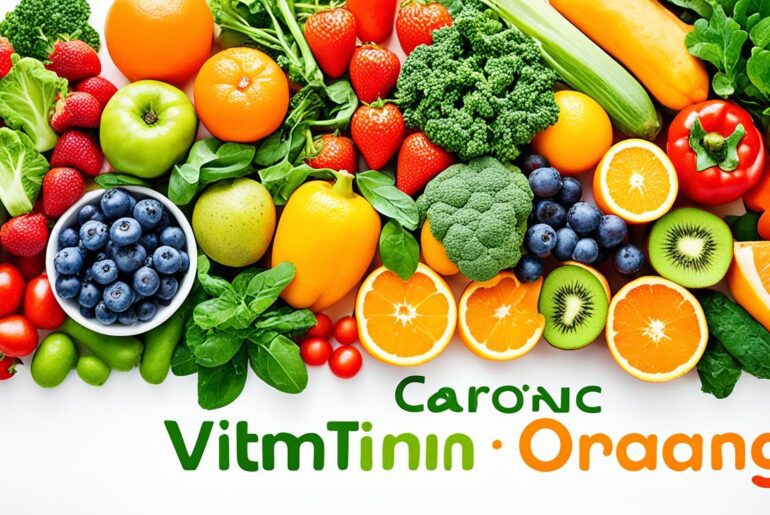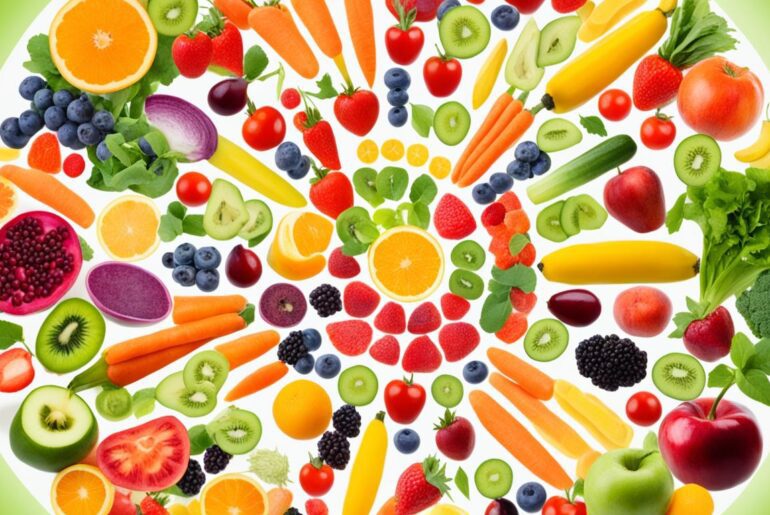Aging is a natural process that we all go through, but what if there was a way to slow down its effects and maintain a youthful appearance? The answer may lie in essential vitamins. These powerful nutrients have been shown to offer remarkable antiaging benefits, particularly when it comes to skin health. But which vitamins should you be incorporating into your skincare routine? And how can they help protect against cellular damage and promote longevity?
In this article, I will delve into the world of essential vitamins and their role in combating the signs of aging. From the antioxidant properties of curcumin to the skin-nourishing effects of collagen, we will explore the science behind these vitamins and how they can be harnessed to achieve a more youthful complexion. Get ready to discover the secrets to healthy and vibrant aging!
Key Takeaways:
- Essential vitamins can provide antiaging benefits for the skin.
- Curcumin, collagen, and vitamin C are among the vitamins that offer remarkable antiaging effects.
- Incorporating essential vitamins into your skincare routine can help slow down the aging process and improve skin health.
- Consult with a healthcare professional before starting any new supplement regimen.
- Stay tuned to learn how these essential vitamins can transform your skincare routine and help you achieve a more youthful and radiant complexion.
Curcumin and its Antiaging Effects
Curcumin, the main active compound in turmeric, has powerful antioxidant effects and has been shown to activate certain proteins that delay cellular senescence.
Animal studies have demonstrated that curcumin can combat cellular damage, increase lifespan, and alleviate age-related symptoms.
Taking turmeric or curcumin supplements can increase your intake of curcumin and provide antiaging benefits for your skin.
Clinical Evidence for Curcumin’s Antiaging Effects
Multiple studies have investigated the potential antiaging effects of curcumin. In a study published in the journal Aging Cell, researchers found that curcumin treatment led to a significant increase in the lifespan of fruit flies by activating certain proteins involved in cellular senescence (Source 1). Another study published in the journal Frontiers in Aging Neuroscience demonstrated that curcumin supplementation improved cognitive function and reduced anxiety-like behavior in middle-aged rodents, suggesting its potential in alleviating age-related symptoms (Source 2).
How to Incorporate Curcumin into Your Antiaging Routine
There are several ways to increase your intake of curcumin for its antiaging benefits:
- Add turmeric to your cooking: Turmeric is commonly used in Indian cuisine and can be added to curries, soups, and stir-fries.
- Curcumin supplements: If you’re not a fan of the taste or prefer a more concentrated form, curcumin supplements are available in capsule or liquid form.
- Golden milk: This traditional Ayurvedic beverage combines turmeric with warm milk and other spices for a soothing and antioxidant-rich drink.
| Benefits of Curcumin for Antiaging | How to Incorporate Curcumin |
|---|---|
| Activates proteins that delay cellular senescence | Add turmeric to your cooking |
| Combats cellular damage | Curcumin supplements |
| Increases lifespan | Golden milk |
| Alleviates age-related symptoms |
By incorporating curcumin into your daily routine, either through cooking with turmeric or supplementing with curcumin, you can harness its powerful antioxidant effects and potentially slow down the aging process.
EGCG and its Role in Promoting Longevity
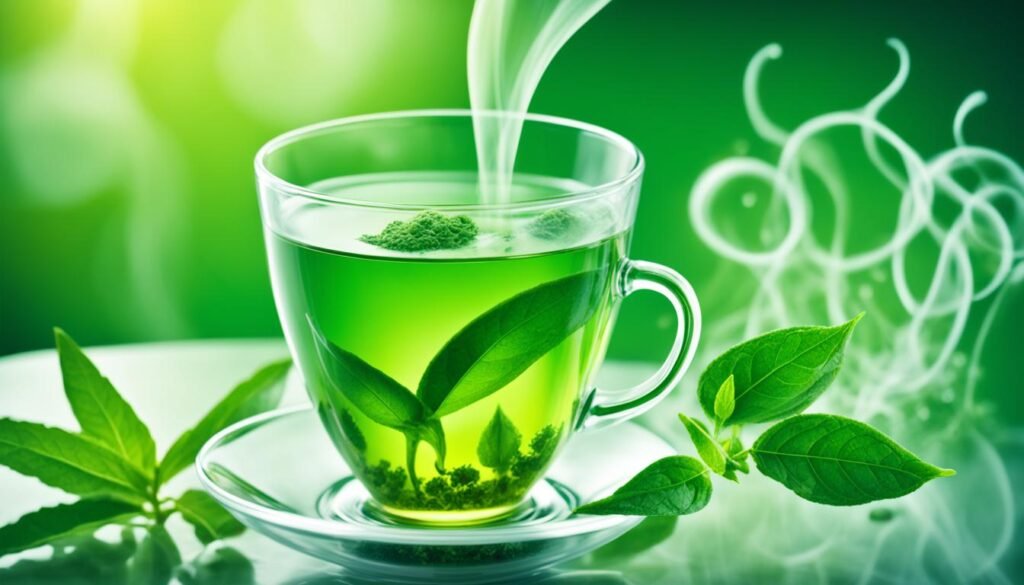
Epigallocatechin gallate (EGCG) is a polyphenol compound found in green tea that offers impressive health benefits, including improved mitochondrial function and activation of pathways involved in aging. It also induces autophagy, the process of removing damaged cellular material.
Research suggests that EGCG can support healthy aging and protect against age-related skin issues. Green tea intake has been associated with a reduced risk of aging skin due to its antioxidant properties. It helps neutralize free radicals that can cause cellular damage and accelerate the aging process. The protective effects of EGCG can also extend to the prevention of hyperpigmentation caused by UV light exposure.
To harness the antiaging benefits of EGCG, you can incorporate green tea into your daily routine or consider concentrated green tea extract supplements. These supplements provide a convenient way to ensure an adequate intake of EGCG for those who may not consume enough green tea through their diet.
The Benefits of EGCG
- Improved mitochondrial function: EGCG has been shown to enhance the activity of mitochondria, the energy-producing powerhouses of our cells. By supporting optimal mitochondrial function, EGCG can help maintain cellular energy levels and promote healthy aging.
- Activation of antiaging pathways: EGCG activates certain pathways, such as the AMP-activated protein kinase (AMPK) pathway, which are involved in regulating cellular processes related to aging. By stimulating these pathways, EGCG can help delay the onset of age-related issues.
- Induction of autophagy: EGCG promotes autophagy, a cellular process that removes damaged proteins and organelles. This helps maintain cellular integrity and prevents the accumulation of toxic substances that contribute to aging.
EGCG is a key component in a variety of antiaging supplements. Its antioxidant properties, along with its ability to improve mitochondrial function and activate antiaging pathways, make it a valuable addition to any antiaging regimen.
| Benefits of EGCG | Summary |
|---|---|
| Improved mitochondrial function | Enhances energy production and promotes healthy aging. |
| Activation of antiaging pathways | Delays the onset of age-related issues by stimulating cellular processes involved in aging. |
| Induction of autophagy | Removes damaged cellular material and prevents the accumulation of toxic substances. |
Collagen for Maintaining Youthful Skin
Collagen is a crucial protein that plays a vital role in maintaining the structure and elasticity of the skin. As we age, the production of collagen naturally slows down, resulting in visible signs of aging such as wrinkles, fine lines, and sagging skin.
To combat these signs of aging and maintain youthful-looking skin, many people turn to collagen supplements. Research has shown that collagen supplementation can effectively reduce the appearance of wrinkles and improve skin hydration.
Studies have also demonstrated that collagen supplements can enhance skin elasticity and promote nail growth, further contributing to overall skin health and appearance.
Adding collagen supplements to your skincare routine can help stimulate the production of collagen in your body, replenishing the diminishing levels associated with aging. By doing so, you can support the structure of your skin and maintain its youthful firmness and resilience.
Pairing collagen supplements with a comprehensive antiaging skincare routine can provide the necessary nourishment and hydration for your skin, helping you achieve a more youthful and radiant complexion.
I personally recommend incorporating collagen supplements into your daily skincare regimen to support the health and structure of your skin.
| Benefits of Collagen Supplements for the Skin | How Collagen Improves Skin Health |
|---|---|
| Promotes wrinkle reduction | Enhances skin elasticity |
| Improves skin hydration | Supports nail growth and strength |
| Increases skin firmness | Restores skin’s natural glow |
CoQ10 and its Effects on Aging

Coenzyme Q10 (CoQ10) is an antioxidant that plays a crucial role in energy production and protects against cellular damage. As we age, the levels of CoQ10 naturally decline, leading to age-related physical decline and increased oxidative stress.
Supplementing with CoQ10 has been shown to offer numerous benefits for healthy aging. It can improve overall quality of life, reduce physical and mental deterioration, and support heart health. By adding CoQ10 supplements to your antiaging regimen, you can effectively slow down the aging process.
CoQ10 acts as a powerful antioxidant, neutralizing harmful free radicals and preventing oxidative stress. This helps to protect cells from damage and maintain their proper function.
“CoQ10 has been shown to improve overall quality of life, reduce physical and mental deterioration, and benefit heart health.”
In addition to its antioxidant properties, CoQ10 is involved in the production of adenosine triphosphate (ATP), the energy source that powers our cells. By supporting optimal energy production, CoQ10 helps to maintain the vitality and function of various organs and tissues in our bodies.
Research has also shown that CoQ10 supplementation can benefit heart health. It helps to maintain healthy blood pressure levels, support cardiovascular function, and reduce the risk of certain heart-related conditions.
To incorporate CoQ10 into your antiaging routine, consider taking CoQ10 supplements on a regular basis. It is important to follow the recommended dosage instructions and consult with a healthcare professional if you have any underlying health conditions or are taking other medications.
By harnessing the power of CoQ10, you can optimize cellular health, reduce oxidative stress, and support healthy aging from within.
The Benefits of CoQ10 for Healthy Aging:
| Benefit | Description |
|---|---|
| Improved quality of life | CoQ10 supplementation has been shown to improve overall quality of life, promoting a sense of well-being and vitality. |
| Reduced physical and mental deterioration | CoQ10 can help slow down age-related physical and mental decline, supporting optimal cognitive function and physical performance. |
| Supports heart health | CoQ10 benefits cardiovascular health by maintaining healthy blood pressure levels and supporting proper heart function. |
With its antioxidant properties and essential role in energy production, CoQ10 is a valuable addition to any antiaging routine. By taking CoQ10 supplements, you can support your body’s natural defenses against cellular damage and promote healthy aging.
Nicotinamide Riboside and Nicotinamide Mononucleotide for Cellular Health
Nicotinamide riboside (NR) and nicotinamide mononucleotide (NMN) are precursors to the compound nicotinamide adenine dinucleotide (NAD+). NAD+ plays a crucial role in energy metabolism and DNA repair, but its levels decline with age. This decline in NAD+ can contribute to accelerated physical decline and age-related diseases.
Research suggests that supplementing with NR and NMN can help restore NAD+ levels and prevent age-associated cellular changes. While more human research is needed for definitive conclusions, these supplements show promise for their potential antiaging effects.
Comparing Nicotinamide Riboside and Nicotinamide Mononucleotide
| Nicotinamide Riboside (NR) | Nicotinamide Mononucleotide (NMN) |
|---|---|
| Derived from vitamin B3 | Derived from ribose and nicotinamide |
| Converted to NAD+ through NR kinase | Converted to NAD+ through NMNAT enzymes |
| Studied for its potential benefits in aging, metabolism, and neuroprotection | Studied for its potential benefits in cellular energy metabolism and longevity |
Crocin and its Role in Fighting Aging

Crocin is a yellow carotenoid pigment found in saffron, which has been shown to combat cellular damage, reduce inflammation, and protect against age-related cognitive decline.
Studies have demonstrated that crocin helps prevent age-related nerve damage and protect human skin cells against inflammation and damage caused by UV light.
Taking concentrated saffron supplements can provide you with the benefits of crocin and help slow down the aging process.
| Benefits of Crocin |
|---|
| Combat cellular damage |
| Reduce inflammation |
| Protect against age-related cognitive decline |
Vitamin C for Skin Health and Immune Function
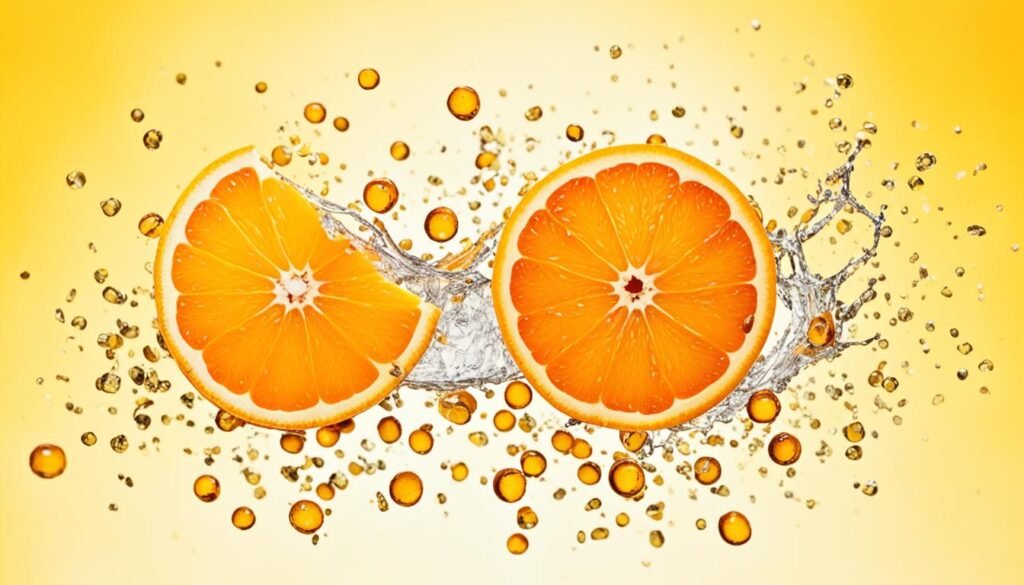
Vitamin C is a powerful antioxidant that plays important roles in maintaining skin health and supporting immune function. As an essential nutrient, vitamin C is involved in the production of collagen, a protein that helps maintain the structure and elasticity of the skin. By promoting collagen synthesis, vitamin C can help improve skin hydration, reduce the appearance of wrinkles, and promote a more youthful complexion.
In addition to its benefits for the skin, vitamin C also plays a crucial role in supporting immune function. It aids in the production of white blood cells, which are responsible for fighting off harmful pathogens and supporting overall immune health. Adequate vitamin C intake can strengthen the immune system and help protect against infections and diseases.
Research has shown that higher blood levels of vitamin C are associated with better cognitive function, including improved memory and attention. Vitamin C’s antioxidant properties also help protect brain cells from oxidative stress, which can contribute to age-related cognitive decline.
Furthermore, vitamin C offers protection against sun damage. It acts as a powerful antioxidant, neutralizing harmful free radicals generated by UV radiation. This antioxidant activity helps prevent DNA damage, inflammation, and premature aging caused by sun exposure.
It’s important to note that older adults have a higher risk of vitamin C deficiency, which can impair skin health and weaken the immune system. Supplementation may be necessary to maintain optimal vitamin C levels and support overall health and well-being.
“Vitamin C is crucial for maintaining skin health, promoting collagen production, and supporting a strong immune system. A deficiency in this essential nutrient can lead to skin problems and weakened immunity. Including vitamin C-rich foods in your diet or taking supplements can help ensure you’re getting enough of this vital nutrient.”
Here is a table that showcases vitamin C-rich foods:
| Foods | Vitamin C Content (per 100g) |
|---|---|
| Oranges | 53.2mg |
| Kiwi | 92.7mg |
| Strawberries | 58.8mg |
| Bell Peppers (red) | 127.7mg |
| Papaya | 60.9mg |
Including these vitamin C-rich foods in your diet can help boost your intake of this essential nutrient. Additionally, vitamin C supplements are available in various forms, such as tablets, capsules, and powders, providing a convenient option for supplementation.
Note: Consult with a healthcare professional before starting any new supplement regimen to determine the appropriate dosage and ensure it aligns with your individual health needs.
Conclusion
In conclusion, incorporating essential vitamins into your skincare routine can provide a range of antiaging benefits for your skin. Curcumin, found in turmeric, EGCG from green tea, collagen, CoQ10, nicotinamide riboside, nicotinamide mononucleotide, crocin from saffron, and vitamin C have all shown promising effects in slowing down the aging process, protecting against cellular damage, and improving skin health.
By including these vitamins in your daily regimen and considering appropriate supplementation, you can support a more youthful and radiant complexion. However, it is important to consult with a healthcare professional before starting any new supplement regimen to ensure it aligns with your individual needs and any existing medical conditions.
Remember, maintaining a healthy lifestyle, including a balanced diet and regular exercise, is also crucial for overall antiaging and youthful skin. When combined with essential nutrients, your skincare routine can provide optimal support for healthy aging and help you achieve the vibrant and youthful skin you desire.
FAQ
What are the antiaging benefits of essential vitamins?
Essential vitamins provide numerous antiaging benefits for the skin. They can help protect against cellular damage, promote longevity, and improve overall skin health.
What is curcumin, and how does it offer antiaging effects?
Curcumin is the main active compound in turmeric. It has powerful antioxidant effects and has been shown to activate certain proteins that delay cellular senescence, thereby providing antiaging benefits.
How does EGCG from green tea promote longevity and combat aging?
EGCG is a polyphenol compound found in green tea. It improves mitochondrial function, activates pathways involved in aging, and induces autophagy to remove damaged cellular material, thereby offering antiaging effects.
How does collagen help maintain youthful skin?
Collagen is a protein that helps maintain the structure of the skin. Supplementing with collagen can reduce signs of aging like wrinkles, improve skin hydration and elasticity, and promote nail growth.
What role does CoQ10 play in slowing down the aging process?
CoQ10 is an antioxidant that protects against cellular damage and oxidative stress. Supplementing with CoQ10 can improve overall quality of life, reduce physical and mental deterioration, and benefit heart health as we age.
How do nicotinamide riboside and nicotinamide mononucleotide contribute to cellular health?
Nicotinamide riboside and nicotinamide mononucleotide are precursors to NAD+, a compound involved in energy metabolism and DNA repair. Supplementing with these nutrients can help restore NAD+ levels and prevent age-associated cellular changes.
What are the antiaging effects of crocin from saffron?
Crocin, a yellow carotenoid pigment found in saffron, helps combat cellular damage, reduce inflammation, and protect against age-related cognitive decline. Taking saffron supplements can help slow down the aging process.
How does vitamin C benefit skin health and immune function?
Vitamin C is a powerful antioxidant that improves skin hydration, collagen production, and protection against sun damage. It is essential for both skin health and immune function.
What are the overall antiaging benefits of essential vitamins?
Essential vitamins offer various antiaging benefits, including protection against cellular damage, improved skin health, and promotion of a more youthful and radiant complexion.

